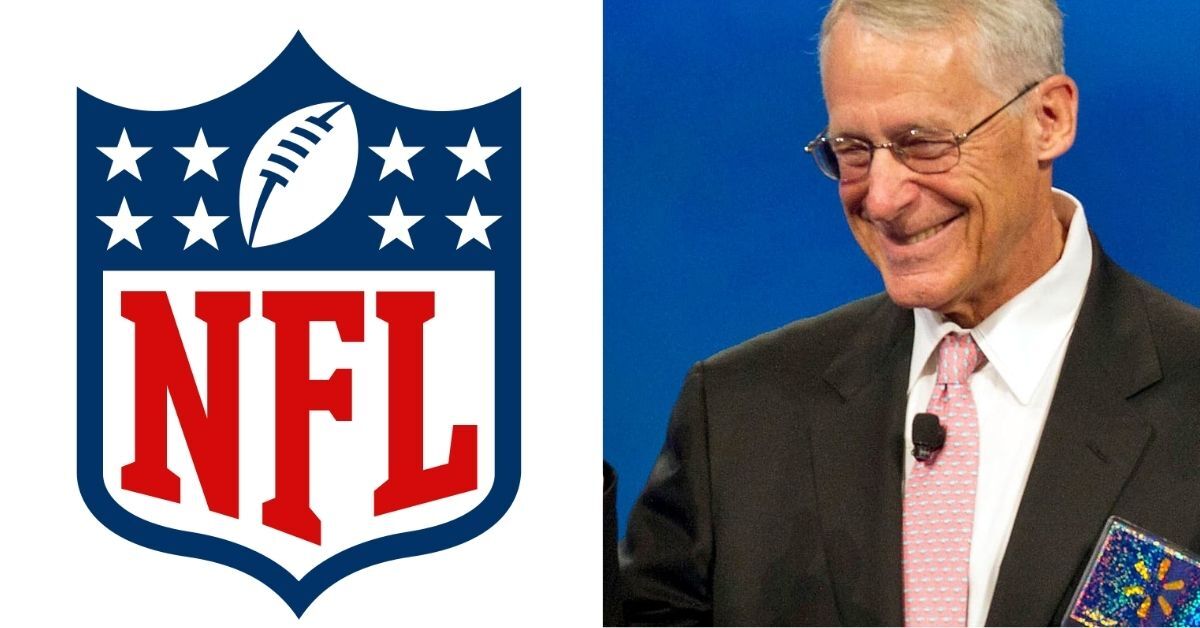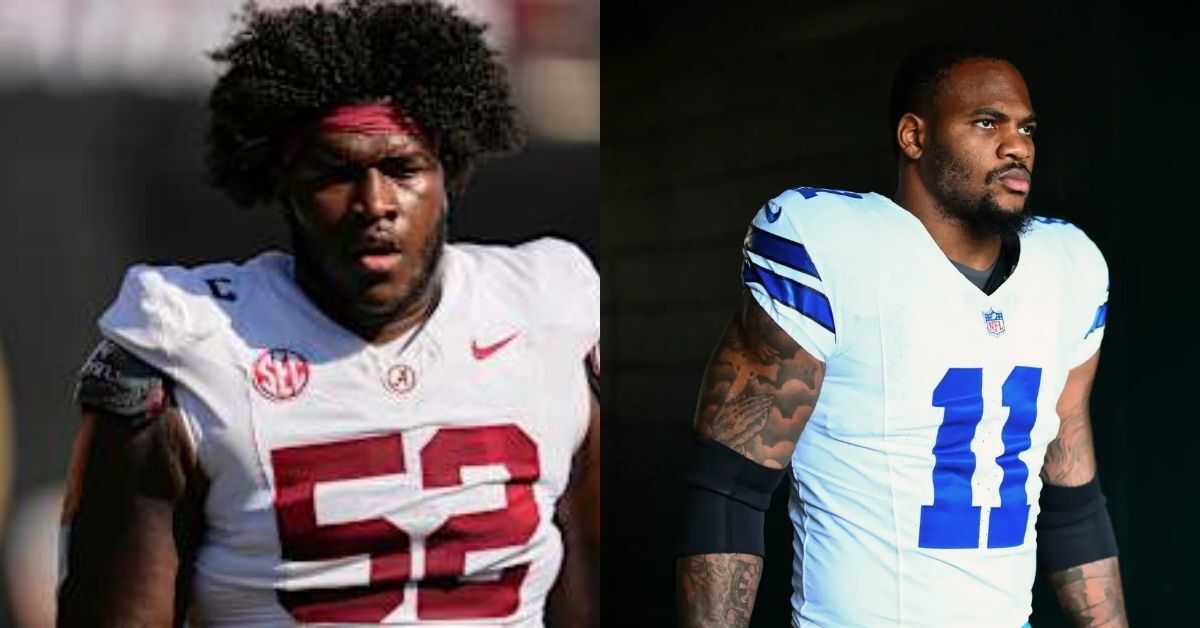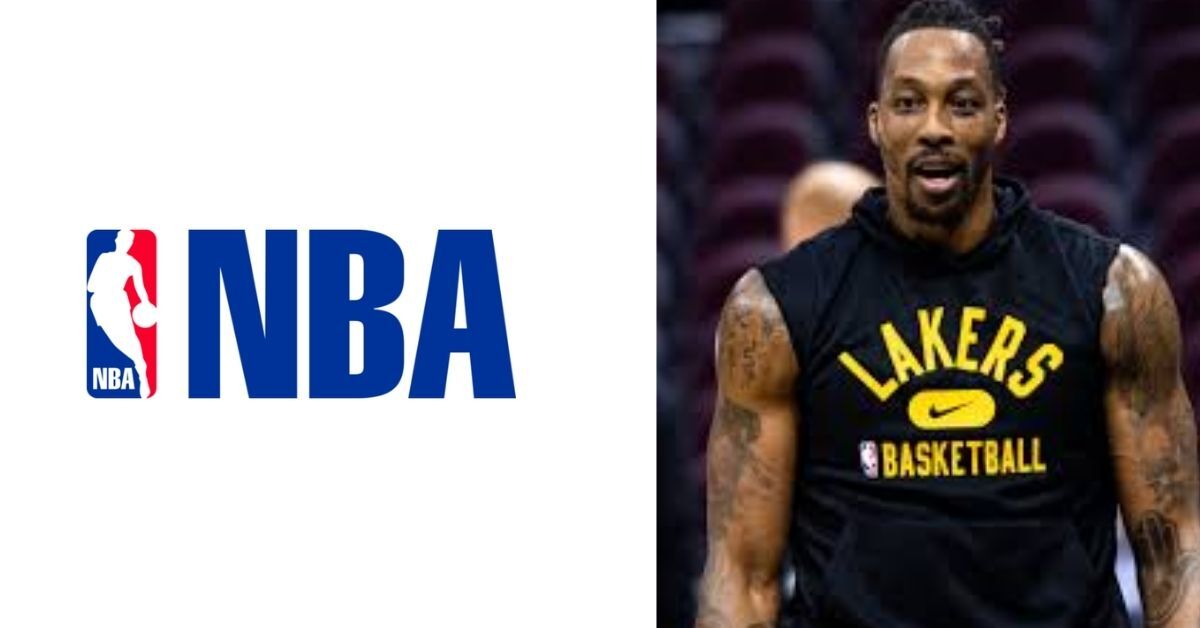Rob Walton, owner of the Denver Broncos, is the richest NFL owner in 2025 with a net worth of $77.4 billion from his Walmart inheritance, a sum that dwarfs all other league owners.
NFL franchises aren’t just sports teams; they’re billion-dollar businesses owned by some of the wealthiest people on the planet.
In this article, we break down the complete ranking of the richest NFL owners in 2025, explore how they earned their fortunes, and reveal the massive wealth gap that exists among team ownership.
Top 10 Richest NFL Owners Of 2025
The financial disparity among NFL owners is staggering, with the wealthiest owner possessing more than six times the net worth of the 10th richest.
Here’s how the top tier breaks down:
| Rank | Owner | Team | Net Worth |
|---|---|---|---|
| 1 | Rob Walton | Denver Broncos | $77.4 billion |
| 2 | Clark Hunt | Kansas City Chiefs | $24.8 billion |
| 3 | David Tepper | Carolina Panthers | $21.3 billion |
| 4 | Jody Allen | Seattle Seahawks | $20.3 billion |
| 5 | Stephen Ross | Miami Dolphins | $18.4 billion |
| 6 | Stan Kroenke | Los Angeles Rams | $18.0 billion |
| 7 | Jerry Jones | Dallas Cowboys | $16.6 billion |
| 8 | Woody Johnson | New York Jets | $16.0 billion |
| 9 | Shahid Khan | Jacksonville Jaguars | $13.4 billion |
| 10 | Robert Kraft | New England Patriots | $11.8 billion |
Rob Walton leads by a massive margin, thanks to Walmart’s fortune, making him more than twice as rich as any of the other NFL ownership groups.
The rest of the top 10 includes heirs, hedge fund titans, real estate moguls, and self-made entrepreneurs, proving there’s no single path to owning an NFL franchise.
Note: This list covers the individual NFL richest owners only. However, members of their family are part owners of these teams as well.
Breaking Down The Top 10 Richest NFL Owners
Each owner’s path to wealth tells a unique story of inheritance, entrepreneurship, or strategic investment.
Let’s examine the financial powerhouses behind these franchises:
1. Rob Walton – Denver Broncos
| Category | Details |
|---|---|
| Net Worth | $77.4 billion |
| Team | Denver Broncos |
| Primary Wealth Source | Walmart inheritance |
| Background | The eldest son of Walmart founder Sam Walton |
| Ownership | Purchased the Broncos in 2022 with family for $4.65 billion, setting the record for the most expensive sale of a sports franchise in history |
| Legacy | The richest NFL owner in history |
Rob Walton brought unprecedented wealth into the NFL when he purchased the Broncos.
His inheritance from the Walmart empire makes him not only the richest NFL owner ever but also one of the wealthiest people globally.

His entrance marked a new era of ultra-rich ownership in the league, fundamentally changing the financial landscape of professional football.
Rob Walton’s record-breaking Broncos purchase redefined NFL ownership, with the $4.65 billion deal setting a new benchmark for North American sports franchises.
2. Hunt Family (Clark Hunt) – Kansas City Chiefs
| Category | Details |
|---|---|
| Net Worth | $24.8 billion |
| Team | Kansas City Chiefs |
| Primary Wealth Source | Oil & gas, real estate |
| Background | Grandson of oil tycoon H.L. Hunt |
| Ownership | Inherited and leads team ownership since 2006 |
| Legacy | Family co-founded the AFL; sustained football excellence |
Clark Hunt represents the second generation of a family deeply rooted in football history.
Their oil and real estate wealth provide unwavering support for the Chiefs’ operations, while their role in founding the AFL cements their historical legacy.
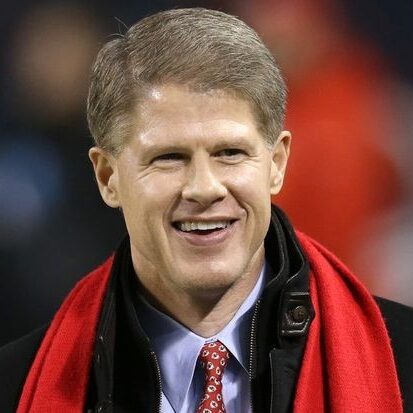
He modernised operations while maintaining the franchise’s competitive edge and championship culture.
Clark Hunt blends historic football legacy with modern leadership, ensuring the Chiefs thrive both on and off the field.
3. David Tepper – Carolina Panthers
| Category | Details |
|---|---|
| Net Worth | $21.3 billion |
| Team | Carolina Panthers |
| Primary Wealth Source | Hedge fund (Appaloosa Management) |
| Background | Self-made billionaire from distressed investing |
| Ownership | Bought Panthers in 2018 |
| Legacy | The wealthiest self-made owner in the league |
Tepper is one of Wall Street’s most successful investors, bringing that same analytical edge to NFL ownership.
After purchasing the Panthers, he emphasised infrastructure improvements and long-term value creation.
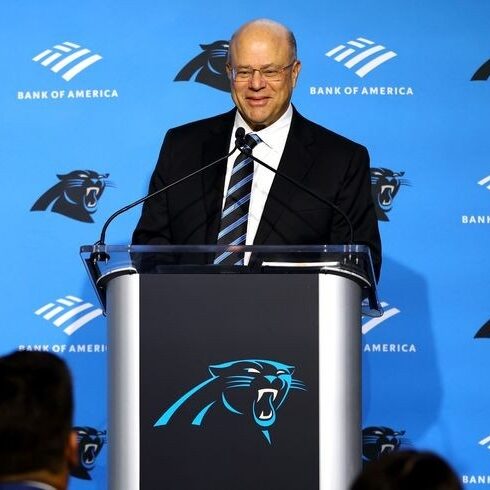
His background in high-risk, high-reward investing makes him a bold and strategically sharp team owner who isn’t afraid to make tough decisions.
David Tepper applies his Wall Street instincts to the Panthers, combining bold strategy with a long-term vision for success.
4. Jody Allen – Seattle Seahawks
| Category | Details |
|---|---|
| Net Worth | $20.3 billion |
| Team | Seattle Seahawks |
| Primary Wealth Source | Microsoft co-founder inheritance |
| Background | Sister of Paul Allen (Microsoft co-founder) |
| Ownership | Took control after Paul’s passing in 2018 |
| Legacy | Oversees the Seahawks and Portland Trail Blazers |
Jody Allen, owner of the Seattle Seahawks, has a net worth of $20.3 billion, inherited as the sister of Microsoft co-founder Paul Allen.
She took control of the team after he died in 2018, stepping into a prominent leadership role.

Besides the Seahawks, she also oversees the Portland Trail Blazers, continuing Paul Allen’s legacy in sports ownership.
Her wealth primarily comes from the Microsoft inheritance, making her one of the richest and most influential NFL team owners today.
5. Stephen Ross – Miami Dolphins
| Category | Details |
|---|---|
| Net Worth | $18.4 billion |
| Team | Miami Dolphins |
| Primary Wealth Source | Real estate (Related Companies) |
| Background | Developer behind NYC’s Hudson Yards |
| Ownership | Majority owner since 2009 |
| Legacy | Modernized Dolphins brand and Hard Rock Stadium |
Stephen Ross, with a net worth of $18.4 billion, is the majority owner of the Miami Dolphins since 2009.
He built his fortune through real estate, founding Related Companies, the firm behind New York City’s Hudson Yards.

Ross has significantly modernised the Dolphins brand and invested heavily in renovating Hard Rock Stadium, turning it into a premier venue.
Under his ownership, the team has gained a stronger commercial presence and enhanced fan experience.
His influence in both real estate and sports makes him one of the NFL’s most prominent and wealthiest owners.
6. Stan Kroenke – Los Angeles Rams
| Category | Details |
|---|---|
| Net Worth | $18 billion |
| Team | Los Angeles Rams |
| Primary Wealth Source | Real estate, sports empire |
| Background | Owns teams across the NFL, NBA, NHL, MLS, and EPL |
| Ownership | Took full control of the Rams in 2010 |
| Legacy | Built SoFi Stadium, won Super Bowl LVI |
Stan Kroenke, with a net worth of $18 billion, is the full owner of the Los Angeles Rams since 2010.
His wealth comes from a vast real estate portfolio and a global sports empire, which includes teams in the NFL, NBA, NHL, MLS, and England’s Premier League.
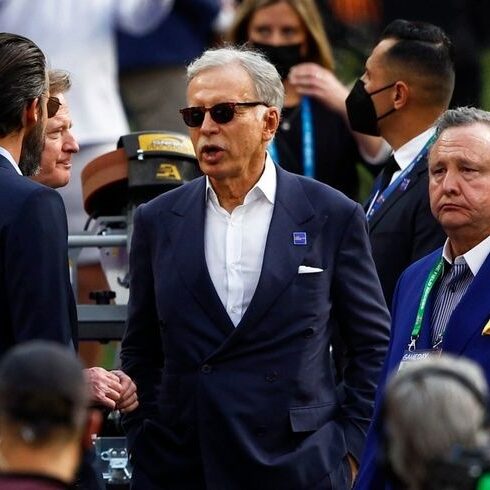
Kroenke played a major role in the development of SoFi Stadium, one of the NFL’s most advanced venues.
Under his leadership, the Rams won Super Bowl LVI, cementing his legacy as one of the league’s most ambitious and successful owners across multiple sports.
7. Jerry Jones – Dallas Cowboys
| Category | Details |
|---|---|
| Net Worth | $16.6 billion |
| Team | Dallas Cowboys |
| Primary Wealth Source | Oil & gas |
| Background | Bought the Cowboys in 1989 with oil profits |
| Ownership | Transformed the Cowboys into the most valuable sports team |
| Legacy | Business innovator and polarising figure |
Jerry Jones, perhaps the most visible NFL owner of the Cowboys, just cracks the top five. The Cowboys remain the most valuable team in sports, worth $10.1 billion.
From luxury suites to revolutionary TV contracts, his influence reshaped the league’s entire business model.
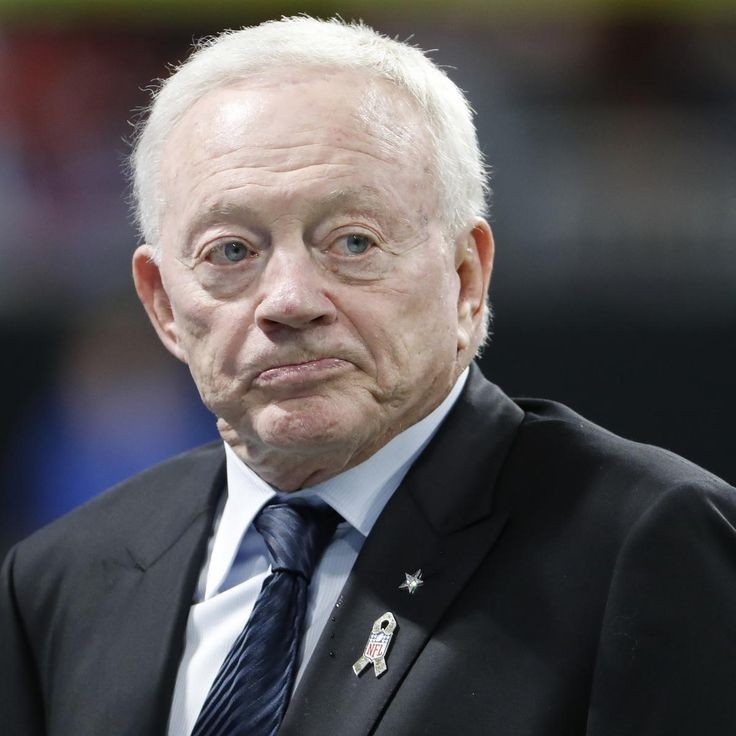
While his hands-on approach generates controversy, there’s no denying his legacy as a marketing genius and trailblazer in sports franchising.
Jerry Jones’s active leadership made the Cowboys worth $10.1 billion. He changed NFL business and sports marketing.
8. Johnson Family (Woody Johnson) – New York Jets
| Category | Details |
|---|---|
| Net Worth | $16.0 billion |
| Team | New York Jets |
| Primary Wealth Source | Johnson & Johnson inheritance |
| Background | Great-grandson of J&J co-founder |
| Ownership | Purchased Jets in 2000 |
| Legacy | U.S. Ambassador, long-term but turbulent Jets tenure |
The Johnson family, led by Woody Johnson, has a net worth of $16 billion, largely from their inheritance of Johnson & Johnson.
Woody is the great-grandson of the company’s co-founder and purchased the New York Jets in 2000.
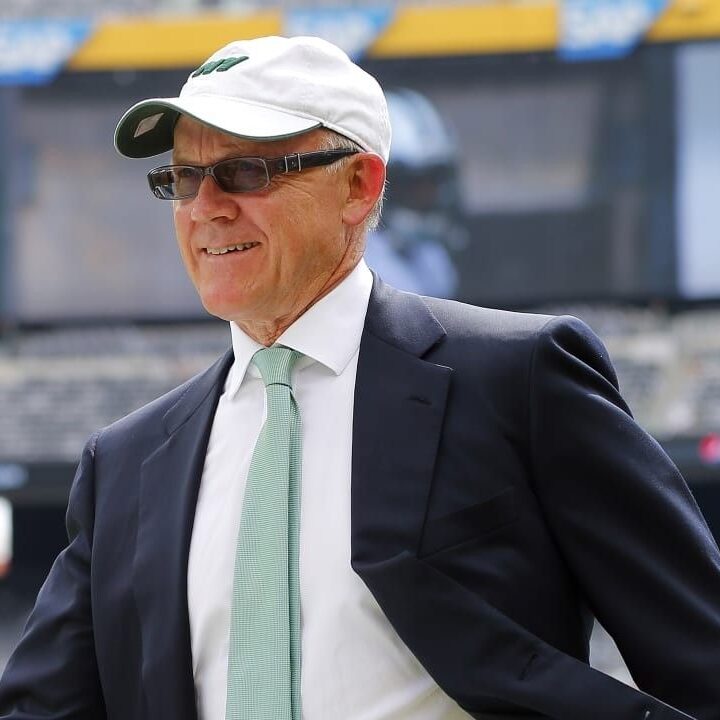
His tenure as owner has been long but marked by inconsistent team performance. Beyond football, he served as the U.S. Ambassador to the United Kingdom.
Despite ups and downs on the field, the Jets remain a high-profile franchise under Johnson’s leadership, blending political influence with legacy wealth in the world of NFL ownership.
9. Shahid Khan – Jacksonville Jaguars
| Category | Details |
|---|---|
| Net Worth | $13.4 billion |
| Team | Jacksonville Jaguars |
| Primary Wealth Source | Auto parts (Flex-N-Gate) |
| Background | Pakistani-American, self-made billionaire |
| Ownership | Bought Jaguars in 2011 |
| Legacy | First ethnic minority NFL owner, owns Fulham FC |
Khan’s journey from immigrant engineer to NFL owner exemplifies the American Dream realized through determination and innovation.
His strategic investment in Jacksonville and commitment to London games demonstrate global ambition for the franchise.
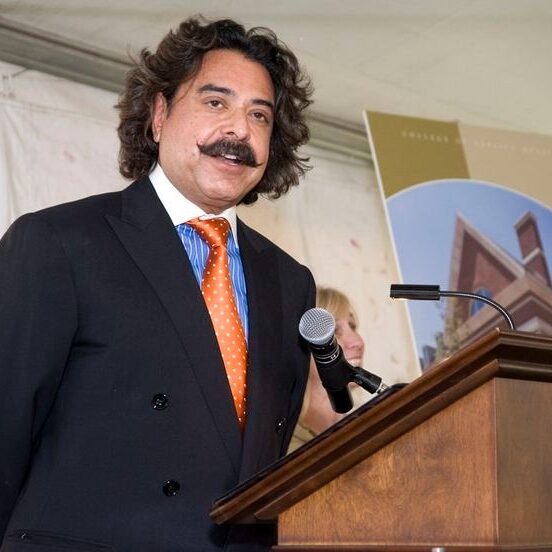
Also owning Fulham FC in England, Khan is building a transatlantic sports legacy based on discipline, innovation, and bold international expansion.
Shahid Khan’s rise from immigrant engineer to NFL owner embodies the American Dream, with his global vision driving the Jaguars and Fulham FC toward bold international success.
10. Robert Kraft – New England Patriots
| Category | Details |
|---|---|
| Net Worth | $11.8 billion |
| Team | New England Patriots |
| Primary Wealth Source | Paper & packaging |
| Background | Built wealth through Rand-Whitney and International Forest Products |
| Ownership | Bought the Patriots in 1994 |
| Legacy | 6-time Super Bowl champion owner |
Kraft’s net wealth of $11.8 billion stems from real estate development and sports sector businesses he has acquired.
The New England Patriots were his 1994 acquisition, costing $172 million. With Tom Brady and Bill Belichick, the Patriots dominated the league under their ownership.
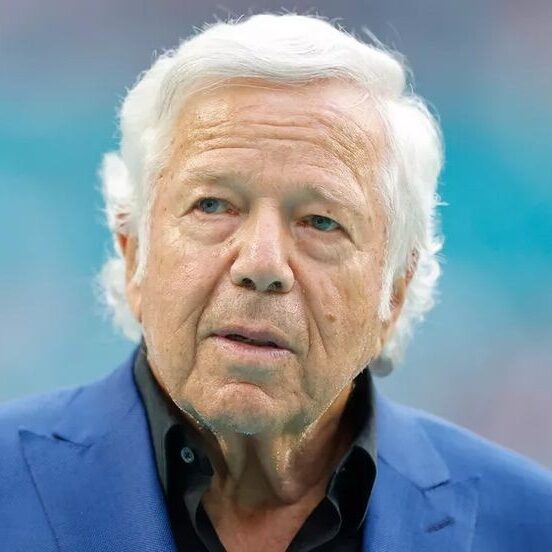
Beyond football, Kraft is renowned for philanthropy, political influence, and strategic media investments that helped shape the NFL’s 21st-century identity.
Robert Kraft built his $11.8 billion fortune through real estate and sports, transforming the Patriots into an NFL dynasty while expanding his influence through philanthropy and media.
Why Does NFL Ownership Attract Billionaires?
NFL ownership offers more than just a seat at the game; it’s a rare blend of power, prestige, and profit that draws billionaires from every industry.
1. Sports + Prestige: NFL teams are prestigious assets offering long-term value appreciation and social status.
2. Business Opportunities: Ownership encompasses far more than football-it’s about media rights, merchandising, real estate development, and major events.
3. Limited Supply: With only 32 teams available, owning an NFL franchise represents membership in one of the world’s most exclusive clubs.
How NFL Owners Make Money
NFL owners don’t just invest in teams, they build empires, tapping into multiple revenue streams that turn passion into profit.
While many fans still wonder, NFL is a non profit organization, the reality is that the league and its teams operate as highly profitable enterprises.
1. Media Deals: Multi-billion-dollar contracts with networks and streaming services generate massive revenue streams.
2. Stadium Revenue: From luxury suites to naming rights, owners capitalise on every aspect of the game-day experience.
3. Team Valuation Growth: Franchises appreciate rapidly-many have doubled in value within a single decade, creating substantial paper wealth for owners.
How Have Rich NFL Owners Helped In The Development Of The League?
Wealthy ownership has revolutionised the NFL through massive infrastructure investments, from state-of-the-art stadiums to cutting-edge training facilities.
These owners have driven technological innovation, enhanced fan experiences, and expanded the league’s global reach.
Their financial backing has also enabled the NFL to negotiate lucrative media deals, increase player salaries, and maintain competitive balance through revenue sharing.
Most importantly, their business expertise has transformed football from a regional pastime into a worldwide entertainment empire worth hundreds of billions of dollars.
Do The Richest NFL Owners Have The Most Successful Teams? (Mini Analysis)
Not necessarily. While wealth provides top-tier facilities and coaching, true success still depends on leadership and game-day decisions.
Even the richest owners have seen their teams struggle, in fact, one even featured in the lowest scoring NFL game in history, showing that money doesn’t guarantee results.
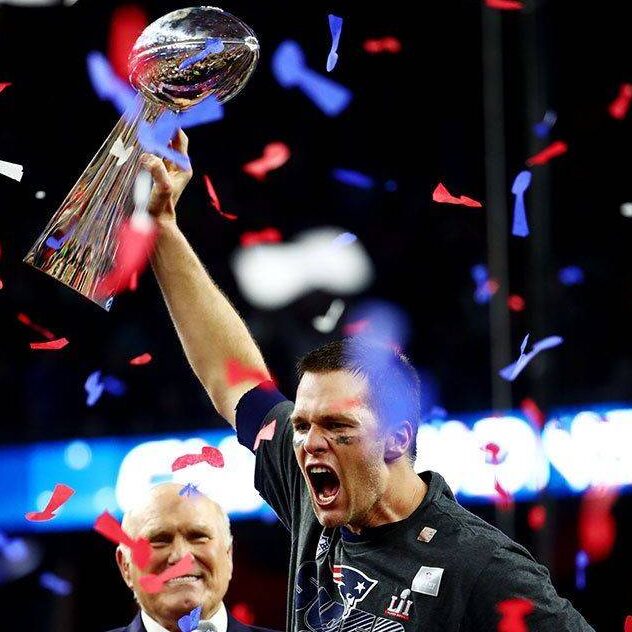
For example, Jerry Jones possesses enormous wealth but has seen mixed results with the Cowboys in recent decades.
Meanwhile, the Hunt Family enjoys sustained success with the Chiefs through strong organisational culture and intelligent decision-making rather than simply outspending competitors.
Related Reads:
Conclusion: Rob Walton Is The Richest NFL Owner Of 2025, With A Net Worth Of $77.4 Billion!
While players steal the spotlight, NFL owners are the true power players. Rob Walton’s Walmart wealth leads a group ranging from oil tycoons to tech heirs, all with immense financial influence.
Whether self-made or inheriting empires, they share a love for football and the means to mould its future.
As the NFL grows globally and embraces new tech, these billionaires remain key to its evolution.
Their vision, resources, and business acumen ensure the league’s transformation into a global entertainment force continues at full speed, on and off the field.
FAQs
Rob Walton is considered the richest owner in the NFL by net worth, with $77.4 billion.
He inherited Walmart’s wealth as the eldest son of founder Sam Walton and served as the company’s chairman for over two decades.
He ranks #7 with $16.6 billion earned primarily from oil & gas investments.
No, most come from diverse industries including technology, real estate, healthcare, finance, and manufacturing.
Not necessarily. Smart leadership, effective coaching, and strategic management often matter more than pure financial resources.
